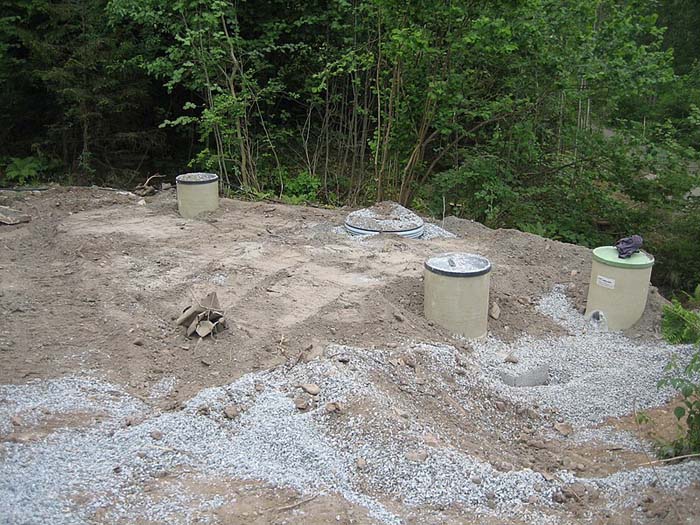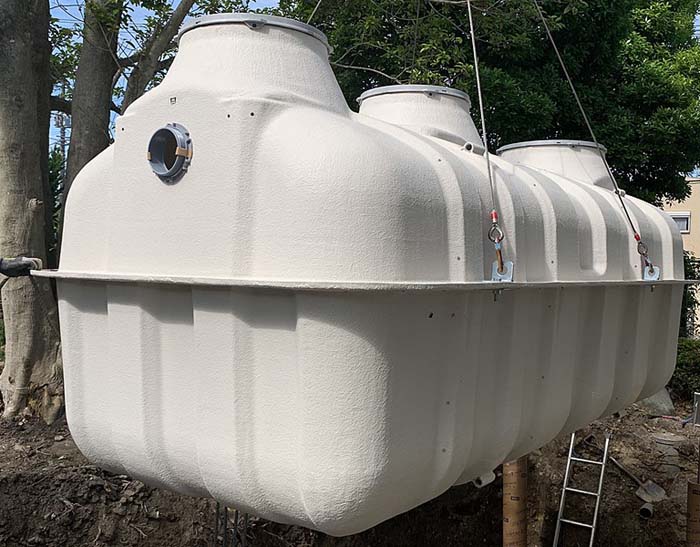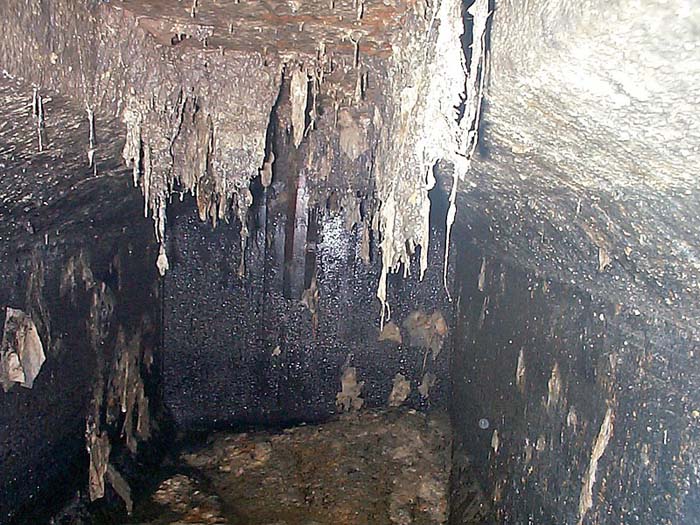
A bio septic system is an efficient and environmentally friendly way to manage and treat wastewater and sewage from homes. As an environmentally friendly substitute for conventional septic tanks, these systems treat wastewater by breaking it down using biological agents and natural processes.
Important components and functionality of a bio septic system
Septic Tank
This is the main part that collects waste from fixtures, including showers, sinks, and toilets. In most cases, this tank has more than one chamber.
Anaerobic Bacteria
This process of decomposing solid waste into simpler molecules relies on these bacteria, which flourish in an oxygen-depleted environment.
Filtration System
A filtration system further treats the liquid effluent after primary waste decomposition, removing harmful pollutants and pathogens.
Soakaway or Drain Field
A soakaway or drain field helps to distribute the treated effluent into the soil, where it continues to be naturally purified.
What is the value of a bio septic system?
A bio-septic system offers both cost savings and environmental benefits. Among the numerous benefits, the following stand out:
The Advantages of the Environment
Minimized Harm to the Environment:
- Effective Waste Breakdown
A bio septic system reduces groundwater contamination by using naturally existing microbes to decompose organic waste.
- Minimized Pollution Risk
When contrasted with a conventional septic system, which occasionally releases untreated sewage into the environment, they limit the likelihood of pollution to adjacent bodies of water.

Decrease in greenhouse gases
- Methane Capture
A number of cutting-edge devices are able to reduce emissions by capturing and utilizing methane, a powerful greenhouse gas, as an energy source.
Recycling and reusing
- Nutrient-Rich Wastewater
The waste product has the potential to be nutrient-dense, making it a viable fertilizer option for farmers.
- Water Recycling
Water treated by a bio septic system can be used for irrigation and other non-potable uses, helping to conserve freshwater resources.
Benefits to the Economy
Affordable:
- Water bill decreases
Recycle treated water for irrigation to reduce your water bill by a large amount.
- Costs of Operations Reduced
Once installed, a bio septic system often has reduced operational and maintenance expenses compared to centralized sewage systems or conventional septic systems.
Longevity and Durability
- Less regular pumping
A bio septic system requires cheaper, regular pumping of solid waste, which means cheaper maintenance expenditures.
- Longer Lifespan
Due to their reduced reliance on mechanical components and increased resistance to environmental stresses, these systems often last longer and are more robust.
Property value increases:
Desirable Feature:
Waste management systems that are less harmful to the environment tend to attract eco-conscious buyers, which can increase the value of your property.
Benefits to Health
Better Sanitation:
- Decreased smells:
Efficient waste breakdown can help reduce the smells commonly associated with traditional septic systems.
- Improved waste treatment
These systems can better treat human waste, which in turn improves sanitation by minimizing the existence of dangerous pathogens.
Social Benefits
Public and Community Health:
- Sustainability Education:
They encourage community members to learn about environmental issues and provide real-world examples of sustainable activities.
- Enhanced public health
A bio septic system improves public health by lowering the possibility of waterborne disease transmission and groundwater pollution.
Technological Innovations
State-of-the-art Design:
- Scalability:
They are adaptable to many sizes of homes and communities, making them useful for everything from small dwellings to sprawling complexes.
- Cutting-edge Methods of Treatment
In order to optimize efficiency and waste breakdown, many modern bio septic systems use cutting-edge treatment technology.
The potential pros and cons of Bio Septic Systems
A bio septic system is a modern wastewater treatment system that treats and decomposes home waste using natural processes. This system is also referred to as an eco-friendly or biological septic system. The possible benefits and drawbacks of a bio septic system are as follows:
Pros
- Economic Benefits:
- Property Value
In eco-conscious neighborhoods, installing a state-of-the-art wastewater treatment system might be a great way to boost your home’s value.
- Long-Term Savings
Though it may be expensive to install initially, you may end up saving money in the long run. This is due to the decreased operational and maintenance costs.
- Low Maintenance:
- Automatic Aeration
Many bioseptic systems require less human involvement. This is because of the built-in aeration procedures that boost bacterial activity.
- Less regular pumping
Less pumping and maintenance may be necessary due to the efficient breakdown of waste in these systems.
- Efficiency:
- Minimized Smells
When bio septic systems work properly, waste decomposes more thoroughly, reducing odors.
- Enhanced Waste Breakdown
Fewer solids and less sludge are byproducts of bio septic systems’ more efficient waste breakdown compared to traditional systems.
- Health Benefits:
- Improved Water Quality:
Many times, the treated effluent is of a higher quality and is safe to release into the environment or even for uses other than drinking water.
- Decreased Pathogens:
They are able to greatly decrease the number of harmful microorganisms in the purified water, making it more environmentally and human-health-friendly.
- Environment Benefits:
- Sustainable
They are eco-friendly because they break down waste using natural processes involving microbes.
- Lower levels of pollution
Bioseptic systems are superior at treating wastewater compared to conventional septic systems. This means that surface and groundwater contamination are less likely to occur.
Cons
- Maintenance Requirements:
- The possibility of mechanical problems
The expense of maintenance could rise if mechanical parts of the system, such as pumps or aerators, break or need replacing.
- Regular Monitoring
Even though a bio septic system doesn’t need pumping as often, it still needs regular monitoring and maintenance for the best performance.
- Reliance on Bacteria:
- Bacterial Balance
The system’s performance depends on a balanced bacterial population, but everyday massive waste loads, medications, or chemicals can upset this delicate balance.
- Intricacy:
- Potential for User Error
Improper use, such as flushing non-biodegradable objects, may result in system damage and disruption of bacterial processes.
- Technical Knowledge
Homeowners should learn more technical details to keep their systems running well and prevent breakdowns.
- Space Requirements:
- Land Area
In urban areas or on smaller properties, the extra room needed to construct some of these systems could be an issue compared to more traditional systems.
- Initial Cost:
- Specialized Installation
Professional installation by experts in complex systems may require more money.
- High Installation Costs
A bio septic system can have a substantially greater initial cost compared to conventional systems.
Because they treat wastewater efficiently and sustainably, these systems have many positive effects on health, the environment, and the economy. However, they rely on a finely tuned balance of biological processes, are more expensive to start up, and need constant attention from experts. To find out if a bio-septic system is the best option for your home, it’s important to think about the benefits and drawbacks.

Applications
When conventional sewage systems aren’t an option, bio septic systems are a great alternative for homes, businesses, and rural areas. Typical septic systems may not work in places with high water tables or low soil percolation, but these alternatives are ideal.
Advantages
- Smell Control
When compared to more conventional methods, biological processes usually provide a far more pleasant smell.
- Sustainability
By relying on natural processes, they lessen the impact on the environment and cut down on chemical treatments.
- Cost-Effectiveness
Because of the reduced operating and maintenance expenses, these systems can be less expensive than conventional septic systems.
- Environmental Benefits
A bio septic system minimizes the risk of groundwater pollution by properly processing waste before releasing it into the environment
Care and maintenance
The effectiveness and durability of a bio septic system depend on regular maintenance. This process includes regularly checking up on the bacterial cultures, removing sludge, and performing other inspections. Additionally, it would help if you did not flush anything that has harsh chemicals or is not biodegradable and can interfere with biological processes.
Conclusion
A bio septic system is worth its weight in gold because it offers an eco-friendly, productive, and economical way to deal with waste. These systems, as an alternative to conventional septic systems, take advantage of natural biological processes that have many positive effects on society, health, the environment, and the economy. Their widespread adoption has resulted in a higher quality of life, more efficient resource use, and cleaner air.
